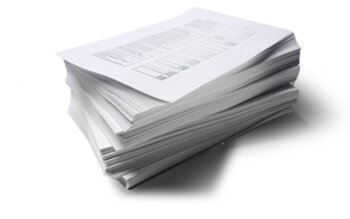Best Conveyancing Lawyers in Vilnius
Share your needs with us, get contacted by law firms.
Free. Takes 2 min.
Free Guide to Hiring a Real Estate Lawyer
List of the best lawyers in Vilnius, Republic of Lithuania
About Conveyancing Law in Vilnius, Republic of Lithuania
Conveyancing in Vilnius, Republic of Lithuania, refers to the legal process involved in transferring ownership of real estate property from one party to another. This procedure includes the preparation, execution, and registration of all necessary documents to ensure that the property transaction is valid, legally binding, and recognized by public authorities. Whether purchasing a home, selling commercial property, or transferring ownership through inheritance or gifts, conveyancing ensures that all legal, tax, and registry obligations are met.
Why You May Need a Lawyer
While some basic property transactions may seem straightforward, many situations can become complex, requiring professional legal assistance. You may need a lawyer in the following scenarios:
- Buying or selling residential or commercial real estate
- Dealing with disputes over property boundaries or titles
- Transferring property through inheritance or as a gift
- Resolving issues related to mortgages, loans, or liens
- Ensuring compliance with Lithuanian anti-money laundering regulations
- Drafting or reviewing sales agreements for accuracy and legal protection
- Handling foreign ownership or cross-border property transactions
- Navigating taxation on property transactions
A knowledgeable conveyancing lawyer in Vilnius can help you avoid costly mistakes, ensure your interests are protected, and provide peace of mind during the property transfer process.
Local Laws Overview
Conveyancing in Vilnius is governed by a range of Lithuanian laws and regulations. Some of the most relevant legal considerations include:
- Real estate transfers must be formalized by a written agreement and, in most cases, certified by a notary public.
- Property transactions must be registered with the Centre of Registers (Registru centras), the official body that maintains records of land and property ownership.
- Buyers and sellers are required to comply with due diligence obligations, including checks for encumbrances, debts, or third-party rights over the property.
- Lithuanian law mandates the disclosure of certain information about the property, such as cadastral data, land use restrictions, and details regarding current leases or easements.
- Foreigners may be subject to specific rules or restrictions on property ownership in some cases, particularly for agricultural or forest land.
- Various taxes may apply, such as stamp duty, notary fees, and income taxes on capital gains from the sale of property.
- The completion of a property transfer typically involves submitting all required documents to the notary and subsequently registering the deed with the Centre of Registers.
Frequently Asked Questions
What is the role of a notary in Lithuanian conveyancing?
A notary acts as an impartial legal professional who authenticates the property sale and ensures the agreement complies with Lithuanian law. Notarization is usually mandatory for property transfers.
How long does the conveyancing process take in Vilnius?
The duration varies but typically ranges from a few days to several weeks, depending on the complexity of the transaction, the readiness of documents, and registry processing times.
Can foreigners buy property in Vilnius?
Yes, foreigners can generally acquire property in Lithuania, although there are some restrictions for agricultural and forest land. Additional documentation and checks may be required.
Are verbal property agreements legally binding in Vilnius?
No, property transfer agreements must be made in writing and, in most cases, certified by a notary to be legally valid.
What taxes and fees should I expect when buying or selling property?
Common costs include notary fees, stamp duty, registration fees, and, for sellers, possible capital gains tax. The exact amount depends on the transaction value and property type.
How do I check if a property has outstanding debts or encumbrances?
Before purchase, a search should be conducted at the Centre of Registers to confirm title, ownership, and any registered encumbrances, mortgages, or restrictions on the property.
What documents are required for a real estate transfer?
Key documents include the title deed, cadastral plan, proof of payment (if applicable), identification of parties, and confirmation of tax or municipal payments. Additional documents may be needed depending on the situation.
Is it necessary to involve a lawyer if I already have a notary?
A lawyer is not legally required but is highly recommended. A lawyer provides independent advice, handles due diligence, and protects your interests beyond the notary's formal role.
What is the process for registering a property purchase?
After notarization, the new ownership must be registered with the Centre of Registers. The notary often submits the documents, but follow up is advisable to ensure registration is finalized.
What happens if there is a dispute after the sale?
Disputes can be resolved through negotiation, mediation, or, if necessary, litigation in the Lithuanian courts. It is advisable to retain legal representation to protect your interests in such cases.
Additional Resources
For those seeking further information or support, the following resources may be helpful:
- Centre of Registers (Registru centras) - Official national institution for property recordkeeping and registration
- Lithuanian Chamber of Notaries - Regulatory body overseeing notary public services
- State Enterprise Centre of Registers' public database - For verification of property titles and encumbrances
- Lithuanian Bar Association - For finding a qualified conveyancing lawyer
- The State Tax Inspectorate - For guidance on fiscal requirements relating to property transactions
Next Steps
If you are planning to buy, sell, or transfer real estate in Vilnius, Republic of Lithuania, consider the following steps:
- Gather all available information and documents related to the property and the intended transaction.
- Consult with a qualified conveyancing lawyer who has experience with Lithuanian property law and can guide you through the process.
- Arrange for a property due diligence check to identify any potential legal issues or encumbrances.
- Contact a notary public to certify the transaction and ensure all legal formalities are met.
- Prepare for additional requirements, such as tax disclosures or approvals, especially if you are a foreigner or handling specialized property categories.
- Maintain clear communication with all parties involved, keep copies of all relevant documentation, and follow up on the registry process until ownership is successfully transferred and recorded.
Seeking tailored legal advice early in the conveyancing process helps ensure your rights are protected and avoids complications that could delay or jeopardize your property transaction.
Lawzana helps you find the best lawyers and law firms in Vilnius through a curated and pre-screened list of qualified legal professionals. Our platform offers rankings and detailed profiles of attorneys and law firms, allowing you to compare based on practice areas, including Conveyancing, experience, and client feedback.
Each profile includes a description of the firm's areas of practice, client reviews, team members and partners, year of establishment, spoken languages, office locations, contact information, social media presence, and any published articles or resources. Most firms on our platform speak English and are experienced in both local and international legal matters.
Get a quote from top-rated law firms in Vilnius, Republic of Lithuania — quickly, securely, and without unnecessary hassle.
Disclaimer:
The information provided on this page is for general informational purposes only and does not constitute legal advice. While we strive to ensure the accuracy and relevance of the content, legal information may change over time, and interpretations of the law can vary. You should always consult with a qualified legal professional for advice specific to your situation.
We disclaim all liability for actions taken or not taken based on the content of this page. If you believe any information is incorrect or outdated, please contact us, and we will review and update it where appropriate.
















